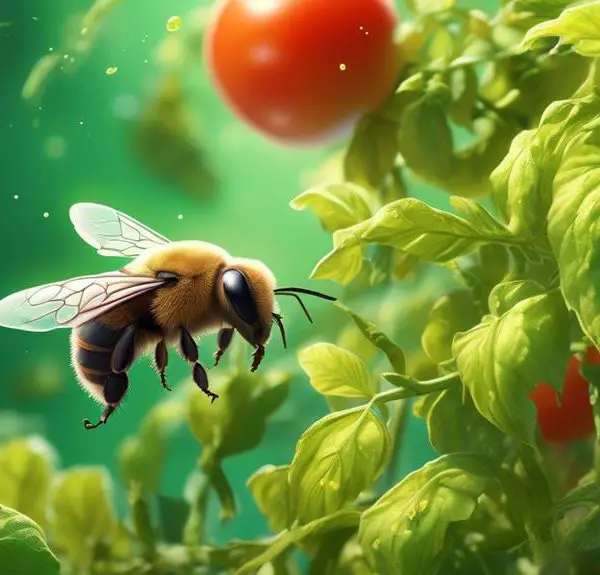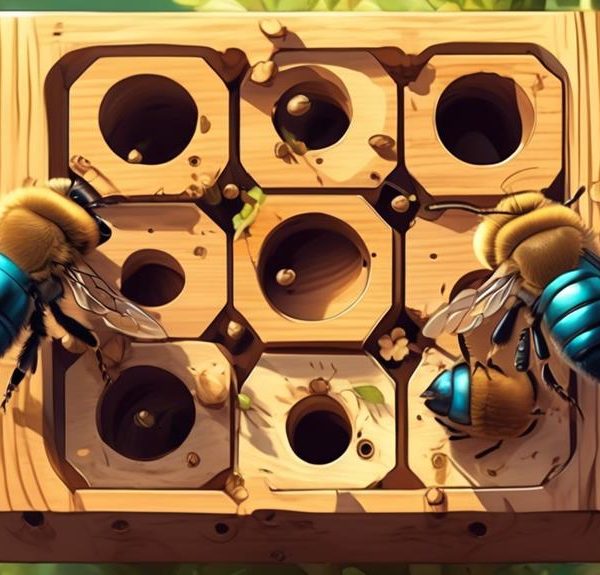Discover the surprising impact Mason bees have on pollinating your vegetable garden and why they're essential to your green thumb success.
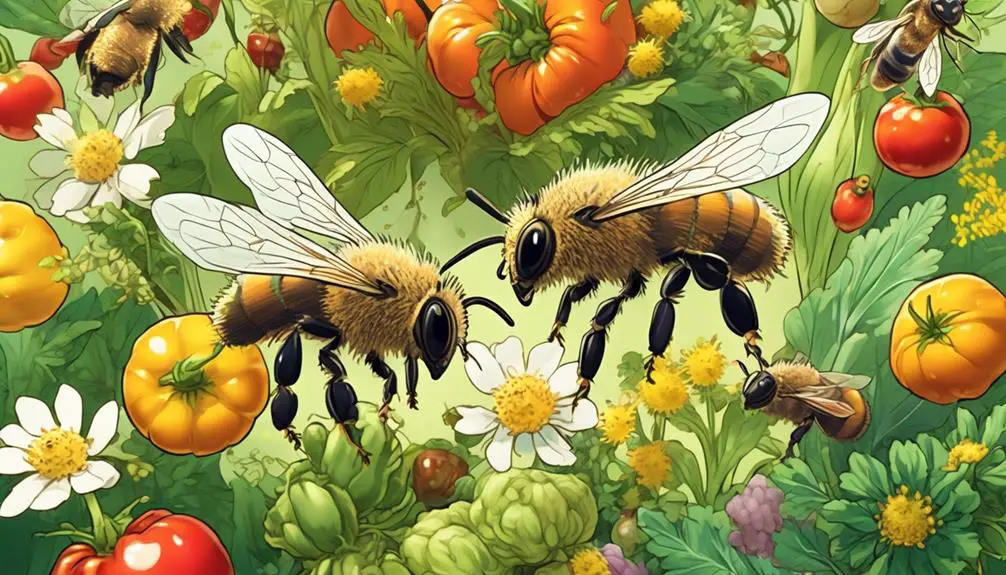
Do Mason Bees Pollinate Vegetables?
Navigating the world of pollinators is like trying to solve a complex puzzle.
You're well aware that bees are vital for pollination, but have you ever wondered about the role of mason bees specifically?
These little powerhouses are often overshadowed by their honey-producing relatives, yet they hold their own unique capabilities.
Let's consider this, do these solitary workers have a significant impact on your vegetable garden?
The answer might surprise you and it's worth exploring further.
Key Takeaways
- Mason bees are efficient pollinators for a wide variety of vegetables due to their versatility and ability to visit multiple flowers.
- They can pollinate up to 100 times more flowers in a day compared to honeybees, resulting in higher fruit and vegetable yields.
- Mason bees' nesting habits help recycle nutrients back into the soil, enhancing fertility in the garden.
- Unlike honeybees, mason bees are gentle creatures and are less likely to sting, making them safe for gardeners to have around.
Understanding Mason Bees
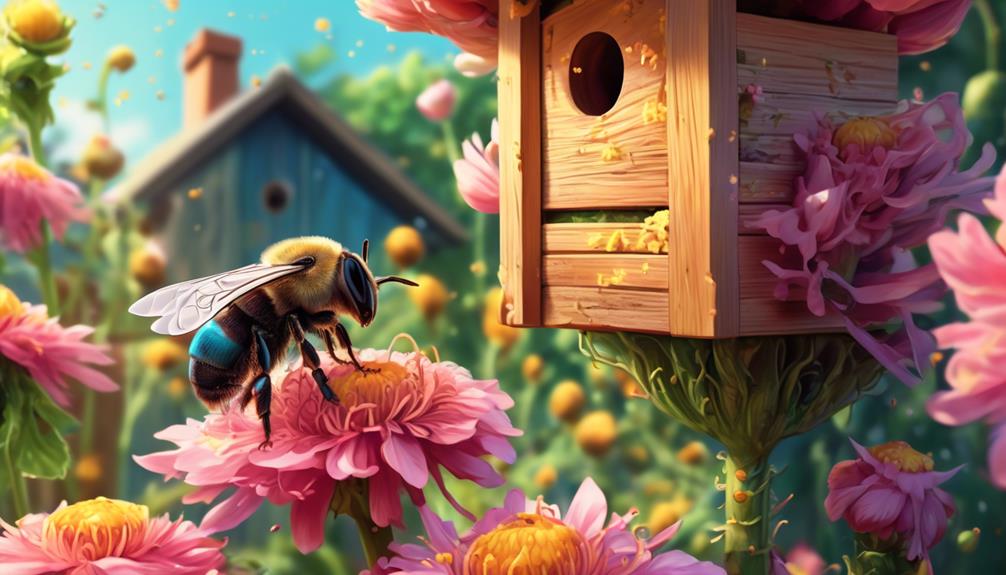
To truly appreciate the role of mason bees in vegetable pollination, you'll need a thorough understanding of their life cycle, behavior, and unique characteristics. Unlike honeybees, mason bees are solitary creatures. Each female is fertile and constructs her own nest, typically in hollow reeds or tubes. They're called 'mason bees' because of their habit of using mud or other malleable materials to build their nests.
Their life cycle is fascinating. After mating, the female lays her eggs in the nest, depositing pollen and nectar as food for the emerging larvae. She then seals the nest with mud and dies shortly after. The larvae metamorphose into adults within the nest and emerge the following spring.
What's unique about mason bees is their efficiency as pollinators. They're not as selective as honeybees and visit a wide variety of flowers. This behavior, coupled with their fuzzy bodies, makes them excellent pollinators. They carry pollen on their underbelly, unintentionally dropping it onto the flowers they visit. This means that when a mason bee visits your vegetable garden, you're guaranteed a high rate of pollination.
Mason Bees: Pollination Powerhouses?
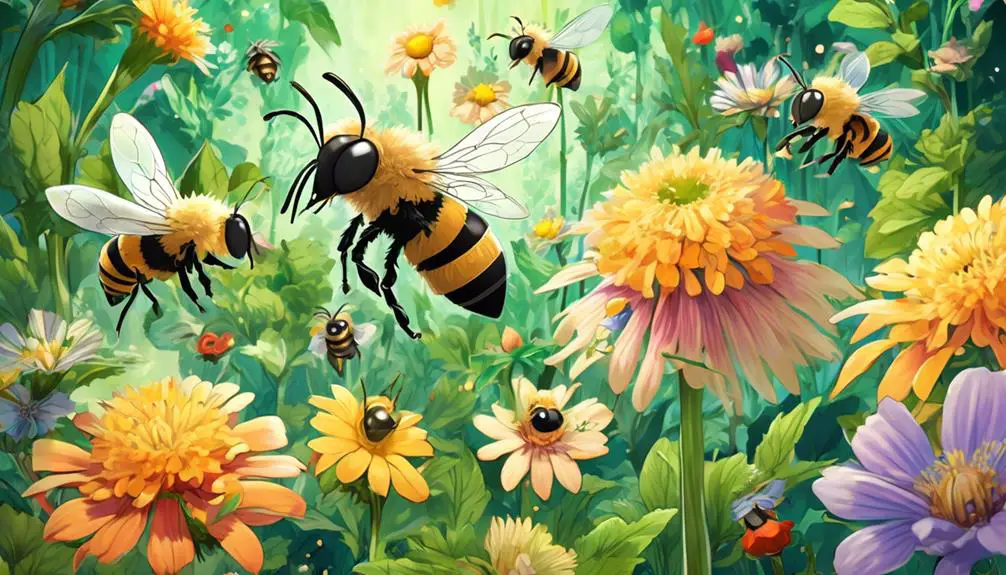
So, why consider mason bees as pollination powerhouses? Well, it's due to their remarkable efficiency. While honeybees may be the more well-known pollinators, mason bees can actually pollinate up to 100 times more flowers in a single day.
They're solitary bees, meaning they don't live in hives but instead nest in small cavities, often in mud or other similar materials, hence their name. This behavior makes them less likely to spread diseases amongst each other, thus increasing their overall population's health and resilience.
Furthermore, mason bees aren't picky eaters. They'll pollinate almost anything in sight, making them incredibly versatile. This adaptability is a significant advantage when it comes to pollinating your vegetable garden. Unlike honeybees, which tend to focus on one type of flower at a time, mason bees will flit from bloom to bloom, spreading pollen far and wide.
Lastly, they're gentle creatures. Mason bees rarely sting unless threatened, making them a safe choice for gardeners of all ages and experience levels. So, not only are mason bees efficient and adaptable, they're also safe and easy to attract to your garden. That's what makes them real pollination powerhouses.
Vegetables and Their Pollinators
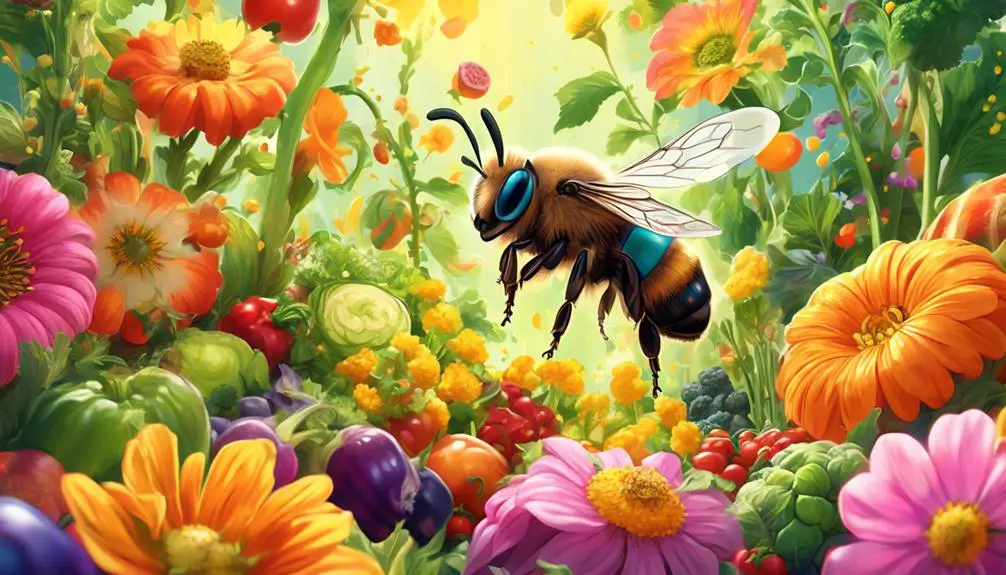
While considering the efficiency of mason bees in your garden, it's equally vital to understand the specific pollination needs of the various vegetables you're growing. Different vegetables require different pollinators for optimum fruiting.
Here's a simple table to illustrate:
Vegetable | Pollination Method | Primary Pollinators |
|---|---|---|
Tomato | Self-Pollination | Bees, Wind |
Cucumber | Cross-Pollination | Bees |
Zucchini | Cross-Pollination | Bees |
Tomatoes can self-pollinate, but they'll produce more and bigger fruits with help from bees or even wind. Cucumbers and zucchinis, on the other hand, need cross-pollination. It means pollen from a male flower needs to be transferred to a female flower, and bees are perfect for this job.
Impact of Mason Bees on Vegetables
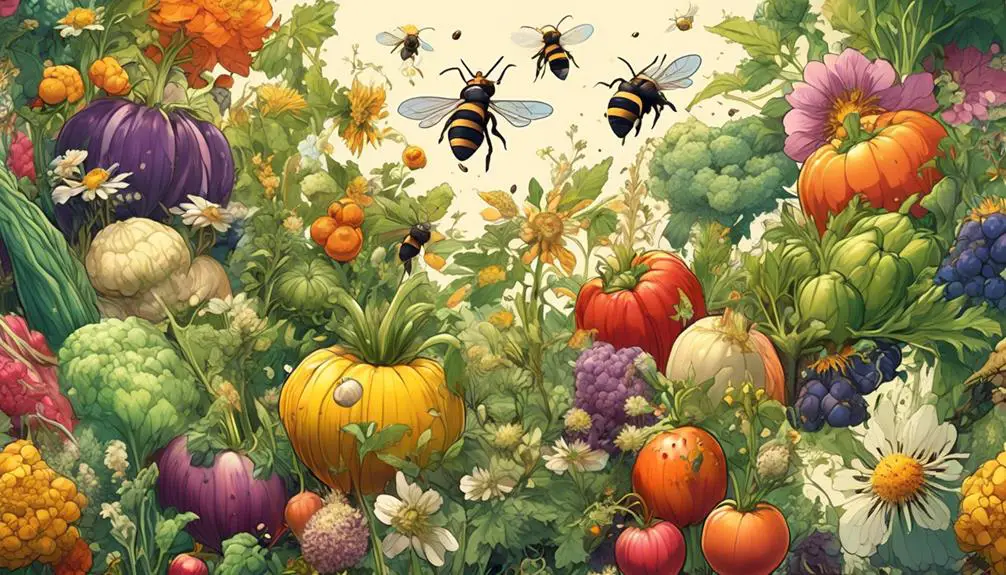
You might be surprised to learn how significantly mason bees can impact the productivity of your vegetable garden. As solitary bees, they're incredibly efficient pollinators, often outperforming their honeybee counterparts. Mason bees visit a multitude of flowers, ensuring a broad pollination spectrum for your veggies.
With their hairy bodies, mason bees are able to collect and distribute pollen efficiently, leading to increased fruit and vegetable yields. They're also less likely to sting than honeybees, making them a gardener's friend. Additionally, mason bees are more tolerant of cooler temperatures, allowing them to start pollinating earlier in the season.
Their nesting habits can also benefit your garden. Mason bees lay their eggs in existing holes or crevices, often choosing spots in decaying wood or hollow stems. This helps recycle nutrients back into the soil, thereby enhancing its fertility.
It's important to note that mason bees need pollen and nectar sources for sustenance. Therefore, having a variety of flowering plants in your garden not only supports these crucial pollinators but also ensures a diverse, healthier ecosystem.
As you can see, encouraging mason bees in your garden can lead to a significant increase in your vegetable yield.
Cultivating Mason Bees for Better Gardens
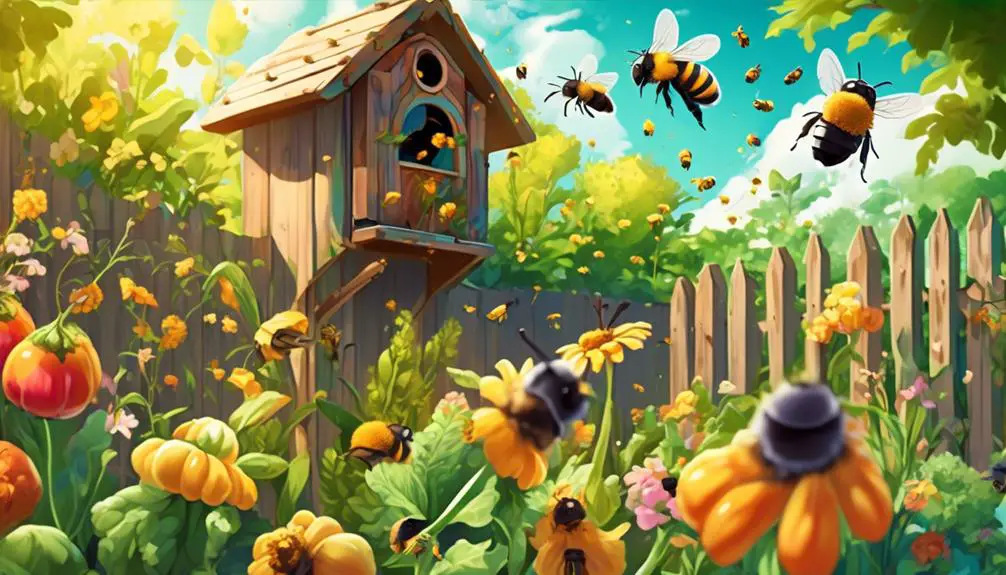
Inviting mason bees into your garden isn't just beneficial, it's a strategic move that can significantly enrich your vegetable yield and overall garden health. These efficient pollinators aren't aggressive and don't require a hive, making them ideal for small, urban gardens.
To cultivate mason bees, you'll need to provide them with a suitable habitat. You can purchase a mason bee house or construct one yourself. Ensure it's placed in a sunny, east-facing location, about 3-7 feet above the ground. The house should have small tubes or holes, where female mason bees will lay their eggs.
Aside from housing, consider the food source. Mason bees require a variety of flowering plants, so diversify your garden with local, native plants that bloom in different seasons. They particularly favor fruit trees and early blooming flowers.
Water is crucial too. A shallow dish with pebbles for them to land on will suffice. Also, avoid pesticides. They're hazardous to these beneficial insects.
Implementing these strategies will help you cultivate a healthy mason bee population. In return, you'll notice an improvement in your garden's productivity, a testament to the crucial role these bees play in pollination.
Conclusion
Indeed, you'll find mason bees are impressive pollinators. They can bolster your vegetable garden's productivity, as they're adept at pollinating a range of plants.
By cultivating these bees, you're not only improving your garden but also supporting these beneficial insects. Remember, a healthy mason bee population can lead to a more abundant vegetable harvest.
So, don't underestimate the role of mason bees in vegetable pollination. They're small but mighty allies in your gardening journey.

